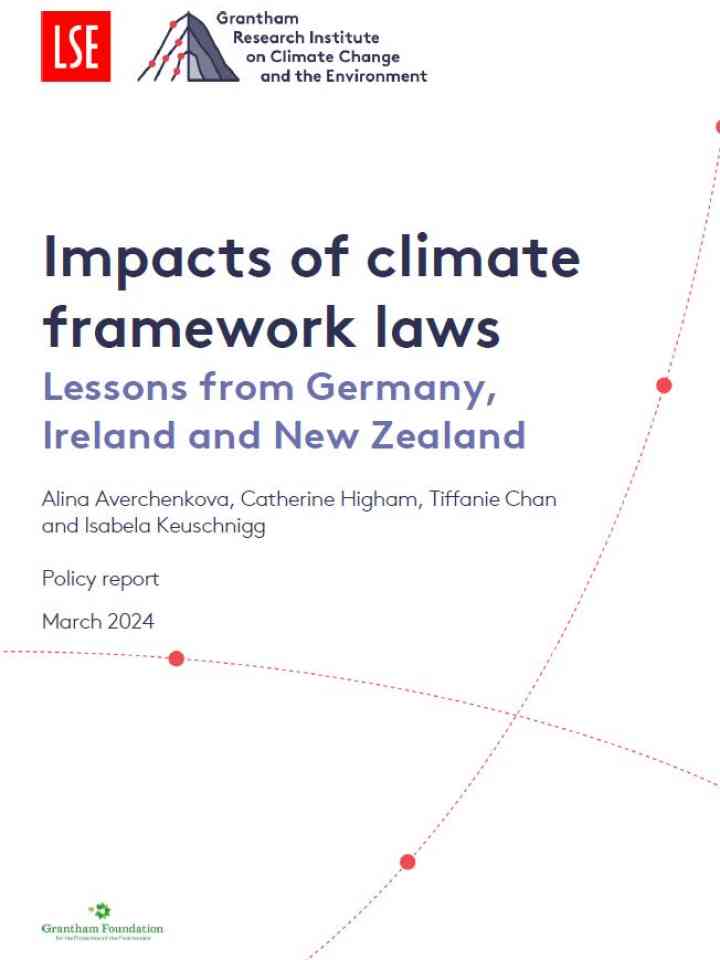Impacts of climate framework laws: lessons from Germany, Ireland and New Zealand
This report and accompanying technical annex analyse the impact of climate framework laws in three countries, Germany, Ireland and New Zealand, based on evidence from 73 expert interviews and desk research. The report covers impacts on: climate governance; political debate; climate policies; citizens and stakeholders; and society and climate. The main report sets out an introduction to each of the case study countries and an overarching analysis of how climate laws have impact and the types of impact they produce; this is accompanied by policy recommendations for legislators, policymakers, business and civil society groups. The technical annex provides more in-depth description and analysis of interviewees’ views.
Some of the key points this report makes, are:
- The common feature among climate framework laws is that they are ‘overarching’, ‘unifying’ or ‘comprehensive’ in their nature and they seek to provide a coherent legal basis for climate action in the respective jurisdiction.
- Germany, Ireland and New Zealand were chosen as case studies as each has had its climate framework law in place for several years and has gone through at least one substantive amendment, enabling exploration of changing perceptions of the laws’ impacts as they have evolved.
- Climate framework laws in the three countries are delivering on several key expectations that are associated with the objectives of such all-encompassing laws.
- Climate framework laws are helping address governance challenges and build effective institutional frameworks and processes on climate change.
Explore further
